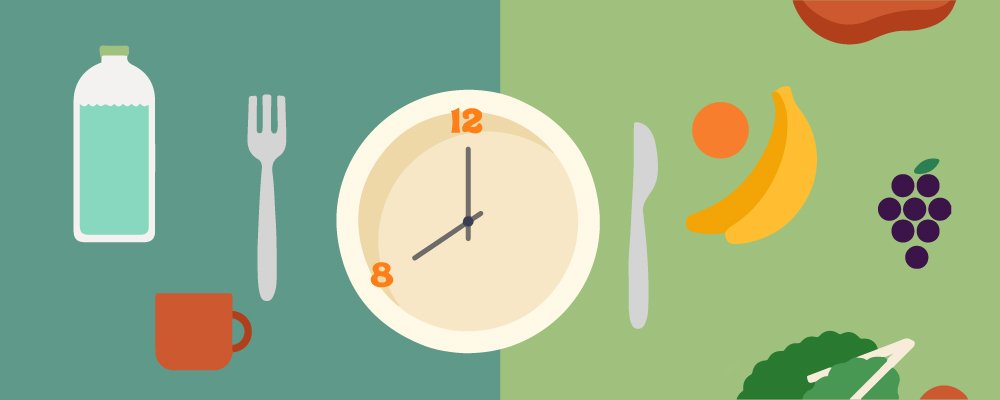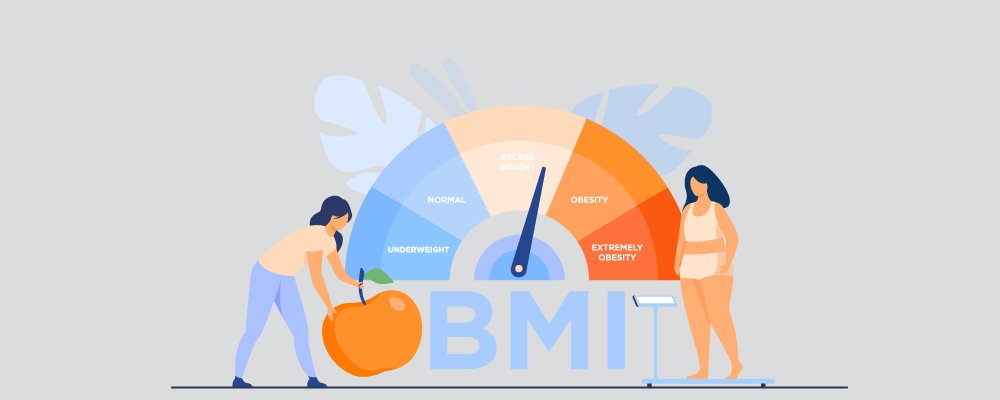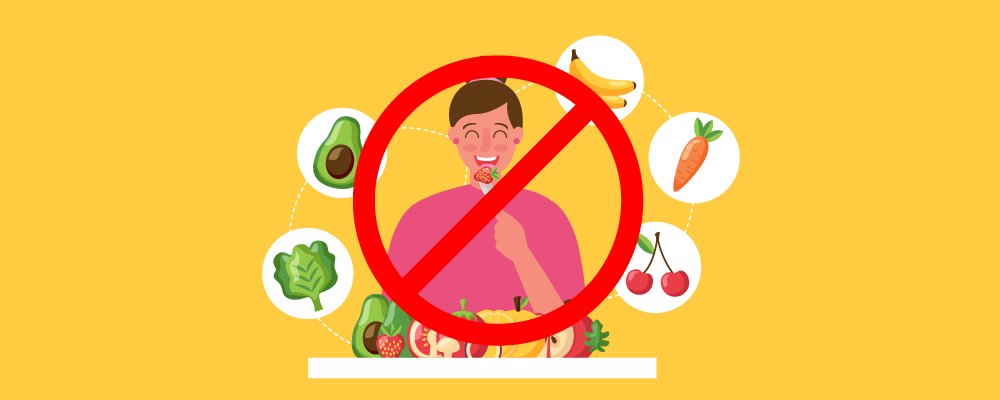Eat Less, Eat More
Intermittent Fasting was the most Googled diet last year, but why? Well, that may have something to do why the benefits its fans claim it can provide.
These benefits include increased energy, weight loss, headaches cured, relief from IBS, and much more.
Intermittent Fasting is a diet that requires its followers to calorie restrict, but only for certain periods of the day. The diet has many popular variants including the 16:8 (where the participant fasts for 16 hours of the day, and is allowed to eat during the other 8) and the 5:2 (where the participant fast for 2 non-consecutive days of the week, and eats unrestricted for the other 5).
Intermittent fasting has grown in popularity over the past few years in many groups of society, with doctors, business leaders, and self-help gurus all proclaiming its benefits.
So, if Intermittent Fasting is a cure-all for our bodies, why aren’t we all doing it?
Well, a lot of people have been put off the idea of Intermittent Fasting because they believe that it is a complicated or restrictive system. Diets have a bad reputation (and for many understandable reasons), however, Intermittent Fasting isn’t a diet, but more of a lifestyle.
If you’re looking to learn how to start Intermittent Fasting, or just want to learn more about it then you’re in the right place. You’ve found yourself reading the ultimate Beginner’s Guide to Intermittent Fasting.
In this guide, we will be discussing what intermittent fasting is, how to do it, and how it can affect your body. We will be looking at a few of the different intermittent fasting variants situs slot gacor and at whether medical health professionals approve of this diet.
By the time you’ve finished this guide, you’ll be ready to change how you eat!
Let’s start with what is intermittent fasting….

What Is Intermittent Fasting?

‘Intermittent fasting is not a diet, it’s a pattern of eating. It’s a way of scheduling your meals so that you get the most out of them. Intermittent fasting doesn’t change what you eat, it changes when you eat.’ James clear.
The best way to understand Intermittent Fasting is to see it as a lifestyle change rather than a diet. As Clear said above, Intermittent Fasting is about getting your food to work for you, rather than being a slave to it.
Many people think of diets as being restrictive, painful, and unpleasant. Fasting is different.
It has been believed for many thousands of years that fasting can bring enlightenment and help the body function better. All the world’s major religions encourage fasting in some way.
Intermittent fasting is a more natural form of eating, as it more closely mimics how our ancestors would have eaten when they were hunter gatherers. At this time eating three medium meals a day was near impossible, so their bodies developed to regulate their hormones around fasting for long periods of time.
‘Intermittent fasting, also known as intermittent energy restriction, is an umbrella term for various meal timing schedules that cycle between voluntary fasting (or reduced calorie intake) and non-fasting over a given period’ Wikipedia, Intermittent fasting
But simply, intermittent fasting is a cycle of time spent fasting, followed by a time that you are allowed to eat in. It is not a diet in the traditional sense as it does not tell you what you should eat. It tells you when you should eat.
The two most common methods of intermittent fasting are 16:8 (fasting for 16 hours, followed by 8 hours of being allowed to eat) and 5:2 (2 non-consecutive days of fasting, coupled with 5 days of normal eating).
The Benefits of Intermittent Fasting

As we mentioned above the benefits of Intermittent Fasting have been preached by doctors, business leaders, and wellness gurus alike. A quick google will bring up 30,000 different people claiming that Intermittent Fasting cured a different ailment of theirs.
Even the Internet’s favorite Doctor, Dr Mike is a fan of Intermittent Fasting.
Today, however, we are only going to be talking about the benefits of intermittent fasting that have been scientifically proven*. But don’t worry, there’s more than enough of those to convince you that you need to start Intermittent Fasting.
*(These studies include tests on both humans and animals)
Let’s dive straight into it…
Perhaps most importantly, intermittent fasting is one of the simplest strategies we have for taking bad weight off while keeping good weight on because it requires very little behavior change. This is a very good thing because it means intermittent fasting falls into the category of “simple enough that you’ll actually do it, but meaningful enough that it will actually make a difference.” Clear
The Benefits of Intermittent Fasting
- Anti-aging benefits – in a study done on rats, scientists found that Intermittent Fasting caused the rodents to live between 31-83% longer. Whilst no long term studies have been done on humans, short term experiments have shown promising results
- Preventing Cancer – Multiple studies on animals have shown that intermittent fasting can severely reduce the likelihood of developing cancer in later life.
- Reduced Inflammation – Studies in both humans and animals have produced evidence that intermittent fasting can help to reduce and prevent inflammation. This symptom can cause a lot of pain in people suffering from chronic illnesses. Intermittent Fasting could be an effective pain relief method for people with chronic and gastrointestinal illnesses.
- Weight Loss – We will cover this in more detail later, however, increased weight loss is a huge benefit of Intermittent Fasting. Studies show that it is a more effective weight loss method than calorie restrictive diets.
- Improved Heart Health – Intermittent Fasting is backed and recommended by the American Heart Association (AHA) because studies have shown how it can drastically improve heart health. Intermittent Fasting has been shown to reduce inflammatory markers, insulin resistance, LDL cholesterol, and blood triglycerides. All of those severely increase the risk of heart disease when too high.
- Insulin Resistance – Studies have shown that Intermittent Fasting can reduce insulin resistance in some people. Participants have also witnessed a 3-6% reduction in blood sugar levels, and a drop of insulin levels up to 31% while fasting.
- Improved Brain Health – Links have been made between Intermittent Fasting and a possible ability to prevent Alzitimers. Intermittent Fasting has also been recorded increasing the brain’s production of a nerve cell growing chemical called BDNF.
Another huge benefit of Intermittent Fasting is its simplicity. Unlike other diets,doctor it does not require a huge change in lifestyle or eating habits. Many people are drawn to the diet for its simplicity. In fact the diet is hugely popular within the minimalist community. Here is Dr Michael Eades talking about his Intermittent Fasting experience:
“Diets are easy in the contemplation, difficult in the execution. Intermittent fasting is just the opposite — it’s difficult in the contemplation but easy in the execution.
Most of us have contemplated going on a diet. When we find a diet that appeals to us, it seems as if it will be a breeze to do. But when we get into the nitty gritty of it, it becomes tough. For example, I stay on a low–carb diet almost all the time. But if I think about going on a low–fat diet, it looks easy.
I think about bagels, whole wheat bread and jelly, mashed potatoes, corn, bananas by the dozen, etc. — all of which sound appealing. But were I to embark on such a low–fat diet I would soon tire of it and wish I could have meat and eggs. So a diet is easy in contemplation, but not so easy in the long–term execution.
Intermittent fasting is hard in the contemplation, of that there is no doubt. “You go without food for 24 hours?” people would ask, incredulously when we explained what we were doing. “I could never do that.” But once started, it’s a snap.
No worries about what and where to eat for one or two out of the three meals per day. It’s a great liberation. Your food expenditures plummet. And you’re not particularly hungry. … Although it’s tough to overcome the idea of going without food, once you begin the regimen, nothing could be easier.”
— Dr. Michael Eades
Potential Intermittent Fasting Schedules

After reading about all the benefits Intermittent Fasting can bring to your life you’re probably pretty keen to get started as soon as you can. So, let’s get a little more practical.
The key element to successful intermittent fasting is to find an eating pattern that works best for you. Intermittent fasting works differently for everyone. Each of our bodies’ have different needs, and there is no one size fits all version of intermittent fasting.
In this next section we are going to talk you through some of the most popular intermittent fasting schedules.
Daily Intermittent Fasting
 There are two main categories of intermittent fasting; daily and weekly. With daily fasting you treat each day as its own cycle. Weekly fasting treats seven days as one complete cycle.
There are two main categories of intermittent fasting; daily and weekly. With daily fasting you treat each day as its own cycle. Weekly fasting treats seven days as one complete cycle.
If you have a routine that varies very little from day to day then Daily Intermittent Fasting may be the best option for you.
Let’s take a look at the three most popular methods of daily fasting…
16:8
This is the most popular method of Intermittent Fasting.
With the 16:8 method you will fast for 16 hours of the day and will be allowed to eat within the other 8.
We understand that 16 hours of not eating sounds terrifying. The good news is you’ve probably done a 16 hour fast without even realising it. If you’ve slept through the night and then skipped breakfast, it’s very likely that you’ve done a 16 hour fast.
Yes, you read that correctly, sleep time counts towards fasting time.
Many people are drawn to this method as it involves only having to skip one traditional meal (either breakfast or dinner). This makes it much easier to socialise with or live with people who are not Intermittently Fasting alongside you. It also means you don’t have to skip out on work nights out, or family dinner at the local pizza place.
We recommend starting with this method, it will give you a chance to understand how your body responds to fasting. You should try this for 6-8 weeks before moving on to a more intense (fasting for longer) method.
20:4
If after two months you are feeling well and energetic during your fasting hours then you may want to experiment with the 20:4 method.
As you may have already guessed the 20:4 method involves fasting for 20 hours, and then allowing yourself 4 hours to eat in.
The fasting time is longer with this method, and the eating window is much narrower. To successfully pull off this pattern you will need to do a lot of advanced planning. As you may find yourself requiring food at odd times when the stores might not be open.
Some people choose solely to do one of the above, whilst others choose to do 16:8 for half the week and 20:4 for the other half.
OMAD
OMAD stands for One Meal A Day. It is a more extreme version of Intermittent Fasting. ON an OMAD diet the user allows themselves around 1 hour a day to eat.
In that hour they will eat a single, large meal.
OMAD diets are typically used in situations where someone needs to lose weight quickly, for a deadline – like before a boxing match or a show. These diets are not recommended as a long term method, or a healthy way to lose weight.
Short OMAD diet cycles can also be used to kick start (or restart) weight loss in the middle of long term diets. For example, 2 weeks of OMAD may be used every three months when participating in a long term 16:8 lifestyle.
It is recommended that you try to eat your one meal during the most active part of your day, rather than at the end of it. That way your body will burn the calories more efficiently. Eating at the end of the day may also prevent or delay sleep.
If you have any kind of health issues you should speak to your Doctor or a registered dietician before taking part in an OMAD diet. Children and diabetics should never participate in OMAD diets.
Alternate Day Intermittent Fasting
 As the name suggests Alternate Day Intermittent Fasting requires you to spend one day fasting, followed by a day of normal eating.
As the name suggests Alternate Day Intermittent Fasting requires you to spend one day fasting, followed by a day of normal eating.
It is best to try a milder form of Intermittent Fasting (like 16:8) before trying to fast for a whole 24 hours.
There are a few ways to conduct a 24 hour fast. Many people who work full time jobs will consume 300-500 calories rather than doing a strict 0 calorie fast.
Others, however, do not consume any calories for the whole day.
Studies have shown that the time you consume these 500 calories (this number was chosen as it makes up 25% of a non-fasting day’s intake) makes no difference to weight loss or energy levels.
When doing a longer fast like this it is important that you stay very hydrated. This will help prevent a lot of headaches and stomach cramps.
Weekly Intermittent Fasting
 Taking a weekly approach to fasting means you treat your whole week as one cycle rather than an individual day.
Taking a weekly approach to fasting means you treat your whole week as one cycle rather than an individual day.
This is a method that can work well for people who have consistent days off every week. As they can plan their fasting days around when they are most busy.
It is important to keep the days that you are fasting consistent. Your body needs to grow used to your eating pattern. Erratic changes will put stress on your digestive and immune system.
The most popular form of Weekly Fasting is 5:2. This usually takes the form of two non-consecutive days of fasting, with the other 5 days of the week eating as normal. This is a less extreme version of Alternate Day Fasting.
Like Alternate Day Fasting, it is recommended you consume around 500 calories on your fasting days, particularly if you do not have experience with 24 hour fasting periods.
Intuitive fasting
Many people consider Intuitive Fasting its own form of diet, however we thought it was worth mentioning it briefly here.
When beginning their fasting journey some people take part in Intuitive Fasting – this can take a few forms. Skipping meals when you’re not hungry, choosing to fast if you don’t have time to cook, or choosing when to eat simply by listening to their body’s needs.
Some people, particularly those who are looking to lose weight, find the structure of an eating pattern helps them to develop better self-disciple and stick to their diet.
How Intermittent Fasting Affects Your Body

Now we’re going to explore the effects that Intermittent Fasting can have on your body. If you’re looking to learn how Intermittent Fasting can help you lose weight, check out the next section of this guide.
Reduces Inflammation
Ever wondered why Doctors are constantly telling us to relax more? Well, this probably won’t shock you but stress is awful for our bodies. Not only does it commit the usual crimes like raising our blood pressure, but it has a whole load of knock on effects.
One of these effects is stress on the immune system that results in oxidative stress. In turn, oxidative stress prevents our body from absorbing free radicals.
These free radicals can damage the proteins in our DNA and cause them to mutate. Studies have shown that Intermittent fasting can reduce oxidative stress levels in our bodies. They have also shown that fasting can reduce inflammation in our bodies too.
Reduces Insulin Resistance
Being more selective about when we eat can help us to stave off energy crashes by regulating our blood sugar levels.
However, high blood sugar levels affect more than just our energy levels. When our Insulin Resistance is high it raises our blood sugar levels even more. High blood sugar levels have been linked with heart disease as well as diabetes.
It has also been shown that short term fasting can lower Insulin Resistance, and it can also reduce insulin levels by up to 31%.
Produces BDNF
Not only does fasting reduce inflammation, oxidative stress, and blood sugar levels but it can also help improve the health of our brain. Two main benefits have been recorded in Intermittent Fasting trials: increased production of BDNF and increased production of nerve cells.
One of the many growth hormones that fasting increases the production of encourages nerve cells in the brain to grow. It has been suggested that this could prevent degrenitrave diseases like Altziemers.
Fasting also increases the production of BDNF in the brain. Low levels of BDNF have been linked to depression and paranoia.
Intermittent Fasting For Weight Loss

Although there are many health benefits that come hand in hand with Intermittent Fasting the main reason people try it out is for weight loss.
But, why does Intermittent Fasting help you to lose weight?
Well, firstly by reducing the amount of time that they can spend eating each day, most people eat less. And by eating less they lose weight.
As we mentioned above, Intermittent Fasting also changes the hormones produced by your body. Two of these particularly help to facilitate weight loss.
The drop in insulin production, combined with the increased production of growth hormones results in a higher production of Norepinephrine. Studies show that the amount of Norepinephrine that Intermittent Fasting can produce has led to a short term increase in metabolic rates. One study found a 14% increase in metabolic rates after a short period of intermittent fasting.
Some studies have also shown that Intermittent fasting results in less muscle mass loss than calorie restriction diets. That is a much healthier way to lose weight.
It is important to note that Intermittent fasting is not magical, and any weight loss requires the body to be in a caloric deficit (burning more calories than are eaten). If too many calories are consumed during the non-fasting window then any weight loss is very unlikely.
Potential Side Effects and Ensuring Safety

The best way to reap the most benefits from Intermittent Fasting is to practice the diet safely, and to be aware of any possible side effects.
Side Effects
Let’s start with the side effects. Unfortunately, there is no one size fits all diet and Intermittent Fasting may not work for everyone. Some of us will experience no side effects, others may experience all the main ones.
Below is a list of some of the main Intermittent Fasting side effects:
- Excessive Weight Loss
- Overheating
- Cold Sweats
- Nausea
- Extreme Hunger
- Stomach Cramps
- Headaches
- Ineffective Medication*
*Some medication (like heart and blood pressure medication) require a certain balance of nutrients in our body to function correctly. Intermittent Fasting can affect these balances. It is also worth noting that fasting affects how our body absorbs nutrients and chemicals. It is best to take any medication you have with your food if fasting (unless told otherwise).
Safety
Here are a few tips for participating in Intermittent Fasting safely:
#1 – Make sure you are eating enough during your non-fasting window. Adults need a minimum of 1200 calories (roughly) to function correctly. Whilst you may be trying to lose weight, starving yourself will do you more harm than good.
#2 – Drink plenty of water. You’ll see this advice on every health list, but it needs to be on there. Water is one of the most important parts of our diet, and many of us neglect our water intake. It is even more important to stay hydrated whilst fasting.
#3 – Find yourself a variety of tasty 0 calorie drinks so that you have something interesting to consume during fasting days. We love treating ourselves to fruit tea during the day.
#4 – It is not recommended that children and young people take part in any fasting or restrictive diet. There is insufficient scientific evidence to suggest that fasting has any benefit on a still-growing body. But there is a lot of evidence to suggest it does serious, long term damage.
#5 – If you’re doing a strenuous exercise such as running, make sure that you time your run properly because depending on when you’re running you could be in a fasted state with not much energy and at the same time you could be running when its very hot in the afternoon if you’re a morning faster.
Intermittent Fasting Is Not For Everyone: Who Should Avoid Intermittent Fasting?

Like all diets and lifestyle changes, it is not safe for everyone to participate in Intermittent Fasting.
If you are pregnant or breastfeeding you should avoid fasting until you are given permission by your doctor. Restrictive diets and under-eating can seriously harm your baby’s health and your own.
You should also avoid Intermittent Fasting if you are under 18, and in some cases if you are under 25. Restrictive diets and under-eating can stunt physical and mental development in adolescents.
Anyone who is underweight, struggling to gain weight, or has body dysmorphia (or other diet-related mental health issues) should avoid Intermittent Fasting as it can result in weight loss and/or trigger an unhealthy relationship with food.
If you have any concerns about starting Intermittent Fasting then you should discuss it with your doctor or a registered dietician before beginning.
Fasting Frequently Asked Questions

We have no doubt that you will still have a few questions about Intermittent Fasting. So, below we have answered the questions about Intermittent Fasting that we get asked all the time…
What Effect Will Fasting Have On My Metabolism?
 One of the main concerns people have when it comes to intermittent fasting is that it can cause long term damage to their metabolism. A lot of this worry comes from what we know about the long term starvation that comes hand in hand with malnutrition or issues like anorexia.
One of the main concerns people have when it comes to intermittent fasting is that it can cause long term damage to their metabolism. A lot of this worry comes from what we know about the long term starvation that comes hand in hand with malnutrition or issues like anorexia.
Whilst it is a well documented fact that long term calorie restriction and/or fasting can reduce your metabolism. Studies have shown that short term fasting can actually increase your metabolism by up to 14%.
This is most likely because Intermittent fasting is not starvation but rather a new eating pattern. Whilst the pattern has been shown to reduce appetite in overweight people, it does not put the body under the same amount of stress that starvation does.
Not only can intermittent fasting boost your metabolism, but it can also cause your body to produce more Norepinephrine. This is a fat burning hormone that also makes you more alert.
It has also been proven that Intermittent fasting is better for your metabolism than calorie restrictive diets.
Can I Drink While Fasting?
 The aim of your fasting hours is not to consume any calories. This is often misunderstood as not being allowed to consume anything during fasting hours.
The aim of your fasting hours is not to consume any calories. This is often misunderstood as not being allowed to consume anything during fasting hours.
If you are wondering about Supplements, we will answer that later in the FAQs.
When it comes to drinks, as long as the drink has 0 calories you can consume it during your fasting hours. This includes tea and coffee (without milk), as well as other non-caffeinated drinks.
Water is allowed to be consumed during fasting hours, and water intake should never be restricted as part of any diet.
Alcoholic beverages tend to be high calorie drinks and therefore cannot be consumed during fasting hours.
A note on drinking alcohol whilst fasting
When you fast the way your body absorbs nutrients and toxins change. This includes the way it absorbs alcohol. It is likely that you will become more sensitive to drinking alcohol whilst fasting. As it does when we drink on an empty stomach.
When fasting, you should be aware of how much you’re drinking, and limit yourself if needed.
Can I Workout While Fasting?
 A lot of people worry that working out while fasting can lead to exhaustion and even muscle loss.
A lot of people worry that working out while fasting can lead to exhaustion and even muscle loss.
Many people also worry that their body will not have enough fuel while fasting to work out well or safely.
Studies show that the opposite might actually be true.
One study found that the combination of Intermittent Fasting and working out (particularly high intensity interval sprinting training) can boost your body’s production of growth hormones, which are the key to feeling younger and fitter.
The key thing to remember about Intermittent Fasting is that you are not actively restricting calories or repressing your appetite, but instead changing your eating pattern. As you change these patterns you will become more aware of the needs of your body. If your body needs more fuel you will feel hungry when you break your fast.
Will Fasting Cause Muscle Loss?
 The science behind this area of Intermittent Fasting is inconclusive. Whilst the evidence behind Intermittent Fasting is generally positive, a recent 2020 study has suggested otherwise.
The science behind this area of Intermittent Fasting is inconclusive. Whilst the evidence behind Intermittent Fasting is generally positive, a recent 2020 study has suggested otherwise.
This study found that whilst participating in 16:8 Intermittent Fasting the study’s participants lost on average 65% of their lean mass (muscle tissues, etc).
This compared to the 20% the control group lost, or the 30% average seen with calorie-restrictive diets.
However, this study has given no clear indications as to what type of food its participants were eating when not fasting, or as to what their activity levels were during the trial.
Other studies have shown that as long as the recommended amount of physical activity (5 hours of vigorous activity a week) is done, then no excessive muscle loss should be witnessed. As we mentioned about, exercising during fasting periods has been shown to produce better results than exercising without fasting.
Can I Take Supplements While Fasting?
 Whilst Intermittent Fasting techniques vary from person to person there are some general rules that should be followed in order to reap the benefits of fasting.
Whilst Intermittent Fasting techniques vary from person to person there are some general rules that should be followed in order to reap the benefits of fasting.
Breaking Fast?
As long as your supplements are 0 calories then it is possible to take supplements inside a fasting window. This will need a very similar approach to drinking whilst fasting.
However, the way your body breaks down food and liquids changes during your fasting period. So you may find it a lot more beneficial to take your supplements with or just before your first meal of the day.
Do you need to take supplements?
Intermittent fasting alone should not require you to take supplements to fill any gaps in your diet. This is because you are not restricting what you eat, just when.
However, your personal diet may require you to take supplements, we recommend you talk to your doctor or dietician about this. Most women are iron deficient and the colder your country is the more likely it is that you are vitamin D deficient.
Our body is very good at telling us when we’re not consuming what we need to. If you start noticing any unusual side effects, speak to your Doctor.
Is It Safe For Children To Fast?
 According to CHOC (a group of Children’s Dieticians), whilst there have been no long-term studies into the effects of Intermittent Fasting on the physical or mental health of children, it is not recommended.
According to CHOC (a group of Children’s Dieticians), whilst there have been no long-term studies into the effects of Intermittent Fasting on the physical or mental health of children, it is not recommended.
Malnutrition and insufficient calorie intake can stunt the development of adolescents’ brains and bodies.
Until the body has finished developing (age 25 for men, and 21 for women) it is best to avoid any kind of restrictive diet. Before this age, if you wish to lose weight it is best to increase your exercise levels and talk to your doctor.
Summary

What is Intermittent Fasting?
Intermittent Fasting is a diet (or more accurately a lifestyle) that revolves around fasting for small periods of time, then allowing yourself to eat for another short period of time.
The method (much like the paleo diet) is inspired by the eating patterns of our hunter gatherer ancestors, who had to go for longer periods of time without eating.
The method is believed to aid weight loss and hormonal balance within the body.
How to get started?
All you need to get started with Intermittent Fasting is a little bit of advanced planning and to pick your pattern.
The first step in beginning Intermittent Fasting is to pick your eating pattern. There are many options (we have gone into more detail about them above). The two most popular options are 16:8 and 5:2.
You may find you need to experiment with multiple different patterns to discover the one that works best with your body’s natural hormone cycle. Most people take a few tries to find their best option.
Once you’ve picked your pattern it’s time to start planning. The best way to stick to a lifestyle change is to plan ahead to prevent any potential difficulties. You may be eating at unusual times, and will therefore want to have access to food so you can break your fast at the correct time.
Things you should be aware of
If you are pregnant, breastfeeding, under 18, underweight, or struggling with an eating disorder then you should avoid Intermittent Fasting, for the sake of your physical and/or mental health.
You should also be aware that Intermittent Fasting should be coupled with regular exercise. Not doing this can lead to muscle mass loss and other unwanted side effects.
However, if the diet is followed safely, and is coupled with exercise then the science suggests that you can expect to see some amazing results from Intermittent Fasting.

James is a regular contributor to The Ultimate Primate who focuses on providing in-depth guides to health & fitness topics. James loves listening to self-help podcasts and is working on building his knowledge to start his own one in the near future.
